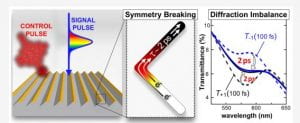Will Schmid wins prestigious NSF GRFP Fellowship!
Big congrats to Will for being awarded the GRFP Fellowship from the National Science Foundation!
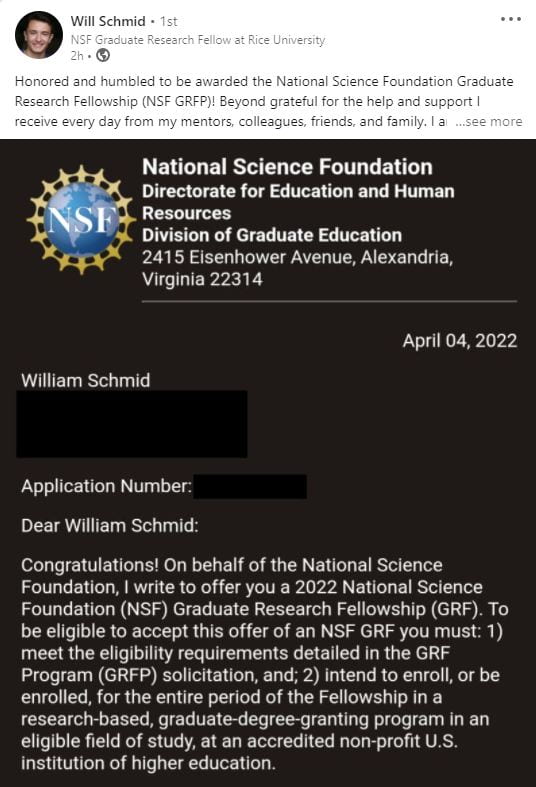
Theoretical and Computational Nanophotonics for Light Harvesting and Energy Applications
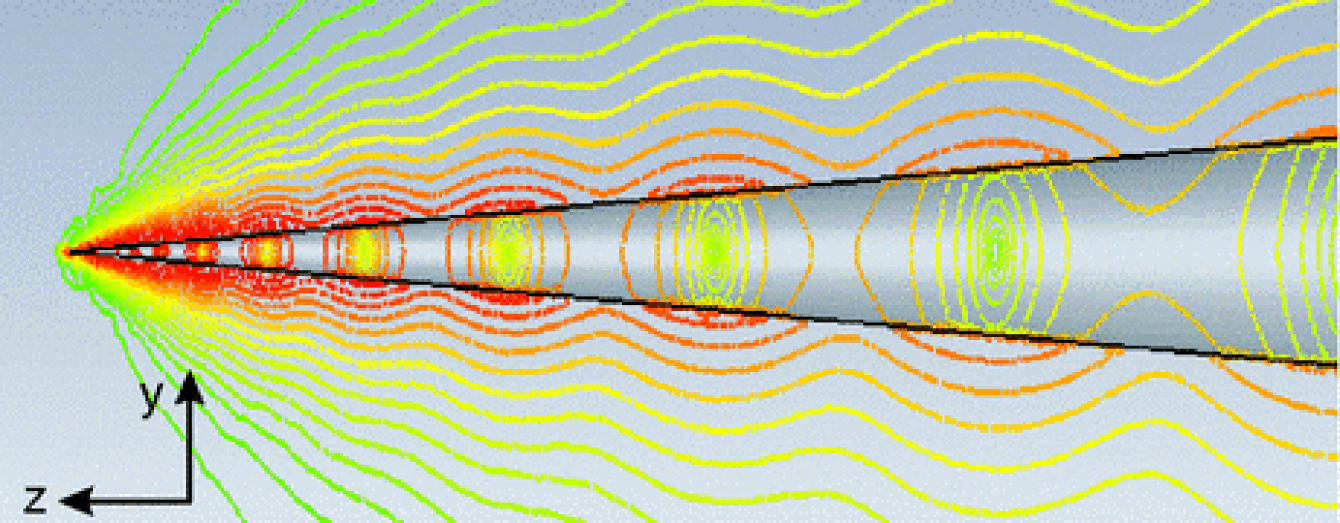
Big congrats to Will for being awarded the GRFP Fellowship from the National Science Foundation!

Our Response to “Distinguishing thermal from non-thermal contributions to plasmonic hydrodefluorination” has been published in Nature Catalysis
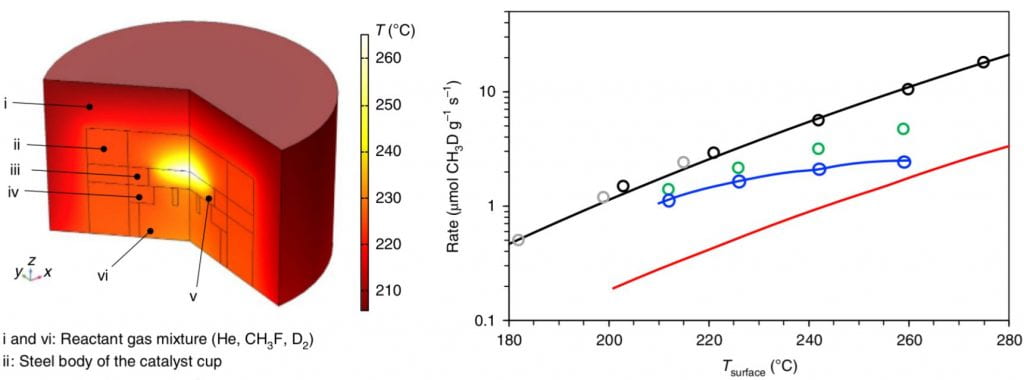
We have utilized a plasmonic nano-rectenna to increase by ~100 times the efficiency of optical rectification at 1064nm (~280 THz).
Converting optical signals into DC current can be achieved through rectification but the process is typically inefficient for larger energies. The approach shows promise for high-frequency wireless power transmission and, possibly, future rectifying light-harvesting systems.
The work has been published in Advanced Energy Materials:
“High-Frequency Light Rectification by Nanoscale Plasmonic Conical Antenna in Point-Contact-Insulator-Metal Architecture”
Great collaboration with the Italian Institute of Technology.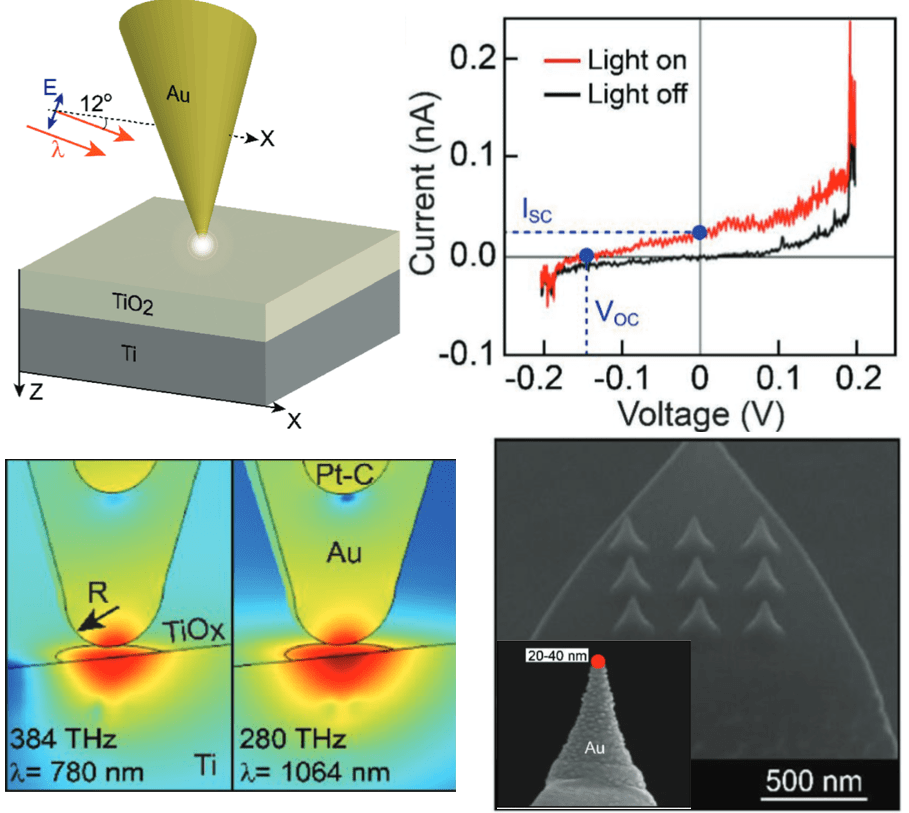
Congratulations to Andrea Schirato for winning the ‘Best Student Presentation’ at EOSAM 2021 with his talk:
“Tuning photothermal dynamics in gold nanoparticle-loaded agarose gel for plasmon-enhanced drug release“
Happy to announce a new Special Issue on the use of photonics for energy applications which will be published by IOP. Dr. Johann Toudert (ICFO) and I will be co-editing the volume.
#energy #photonics #nanotechnology
I encourage you to submit your work before the deadline, October 1st 2021.
Please contact me or Johann if you have any questions. More info at the link below.
https://iopscience.iop.org/journal/2515-7647/page/Focus-on-Photonics-for-Practical-and-Efficient-Energy-Solutions
Our STREED team made it to the 3rd round of the DOE-sponsored Solar Desalination Prize. Moving forward!
See Rice press release:
I am very happy to be one of the lecturers at the PEP21 Summer School! The event will be confirmed at a later date due to the pandemic. But you can already apply! (no pre-payment required)
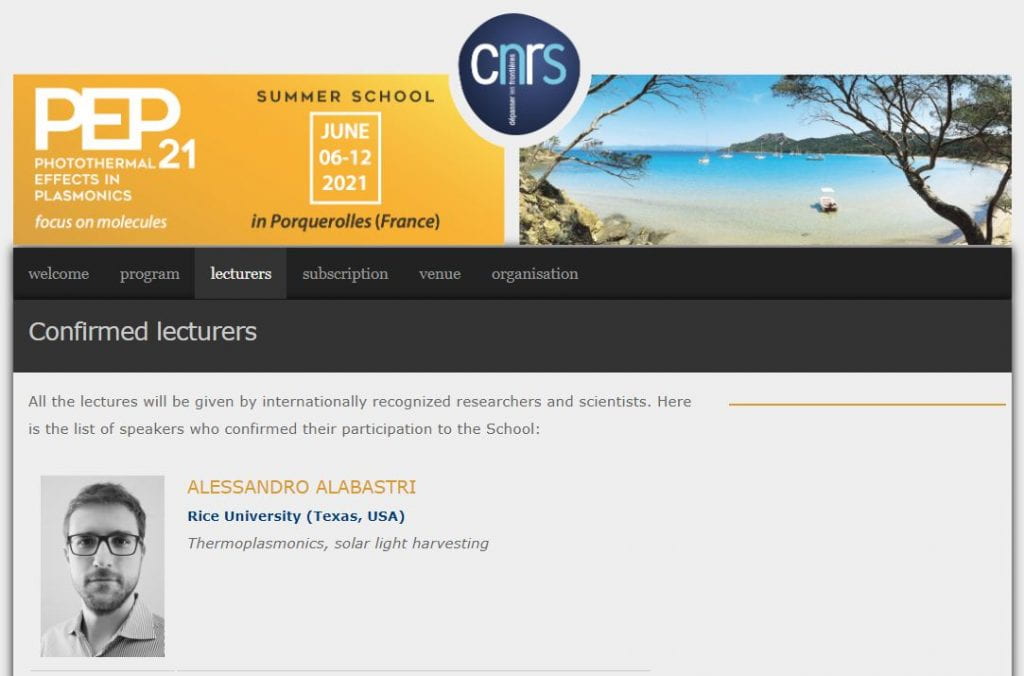
I am enthusiastic to be part of the EOSAM 2021 Program Committee for the Thermal radiation and energy management Topical Meeting which (hopefully!) will be held in Rome 13-17 September 2021.

In collaboration with the experimental group at the Regional Centre of Advanced Technologies and Materials in Czech Republic, we demonstrate the use of scalable, thermal resistant and highly absorptive TiN nanocavities for quasi-2D heat confinement induced steam generation:
Solar steam generation on scalable ultrathin thermoplasmonic TiN nanocavity arrays
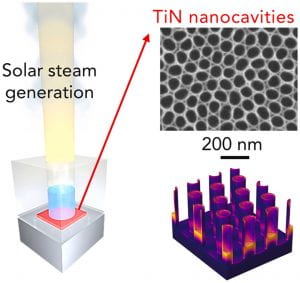
In collaboration with the Polytechnic University of Milan, we exploit hot carrier thermalization to generate an ~ps control of diffraction modes:
All-Optically Reconfigurable Plasmonic Metagrating for Ultrafast Diffraction Management
